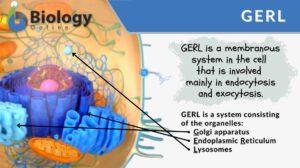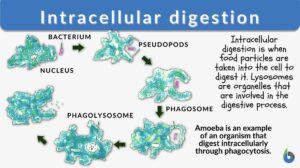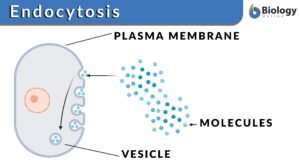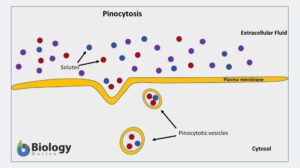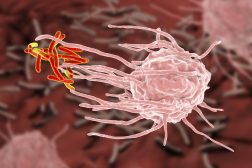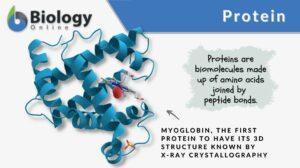Search Results for: lysosome
Phagolysosome
Definition noun plural: phagolysosomes (cell biology) A cytoplasmic body that forms from the fusion of phagosome and... Read More
Endomembrane system
Ever wondered how biomolecules are made within the cell and then they are released outside the cell for use by the body?... Read More
Lysosomal enzyme
Definition noun plural: lysosomal enzymes ly·so·somal en·zyme, ˈlaɪsəˌsoʊm əl ˈɛnzaɪm (biochemistry) Any of... Read More
Endomembrane
Definition noun, plural: endomembranes The membraneous components in a cell, i.e. nuclear envelope, endoplasmic reticulum,... Read More
Golgi apparatus
Golgi Apparatus Definition The Golgi apparatus is a membrane-bound organelle in eukaryotic cells. It plays a crucial role... Read More
Intracellular digestion
Intracellular Digestion Definition What is intracellular digestion? ‘Intra’ means "inside" and ‘cellular’ pertains... Read More
Endocytosis
Endocytosis Definition What is endocytosis in biology? Endocytosis is a cellular process by which a cell internalizes any... Read More
Pinocytosis
Pinocytosis Definition What is pinocytosis? Pinocytosis is the ingestion of extracellular fluids, i.e. the fluid... Read More
Biological Cell Introduction
It only takes one biological cell to create an organism. In fact, there are countless species of single-celled organisms,... Read More
Austin disease
Definition noun A type of lysosomal storage disease that is often caused by a deficiency in multiple sulfatase enzymes, or... Read More
Phagocytosis
Phagocytosis Definition Phagocytosis is a basic physiological cellular process wherein a cell ingests a solid particle... Read More
Animal cell
An animal cell is the fundamental functional unit of life of animals. It is also the basic unit of reproduction. Animal... Read More
Steroid hormone
Definition noun, plural: steroid hormones A type of steroid that acts as a hormone, and that which is exemplified by sex... Read More
Biological Cell Defense
Organisms must find a means of defense against antigens such a viruses described on the previous tutorial. If this was not... Read More
Chromomere
Definition noun, plural: chromomeres (genetics) One of the beadlike granules that are arranged in a linear series along the... Read More
Dictyosome
Definition noun plural: dictyosomes (cell biology) Synonym: Golgi apparatus, i.e. the organelle that is comprised of... Read More
Osteoclast
Definition noun, plural: osteoclasts (cytology) A type of bone cell that is large, multinucleated, and associated with bone... Read More
Golgi body
Definition noun plural: Golgi bodies (cell biology) Synonym: Golgi apparatus, i.e. the organelle that is comprised of... Read More
Glycosidase
Definition noun, plural: glycosidases (biochemistry) An enzyme catalyzing the hydrolysis of a... Read More
Cell Structure
The interior of human cells is divided into the nucleus and the cytoplasm. The nucleus is a spherical or oval-shaped... Read More


